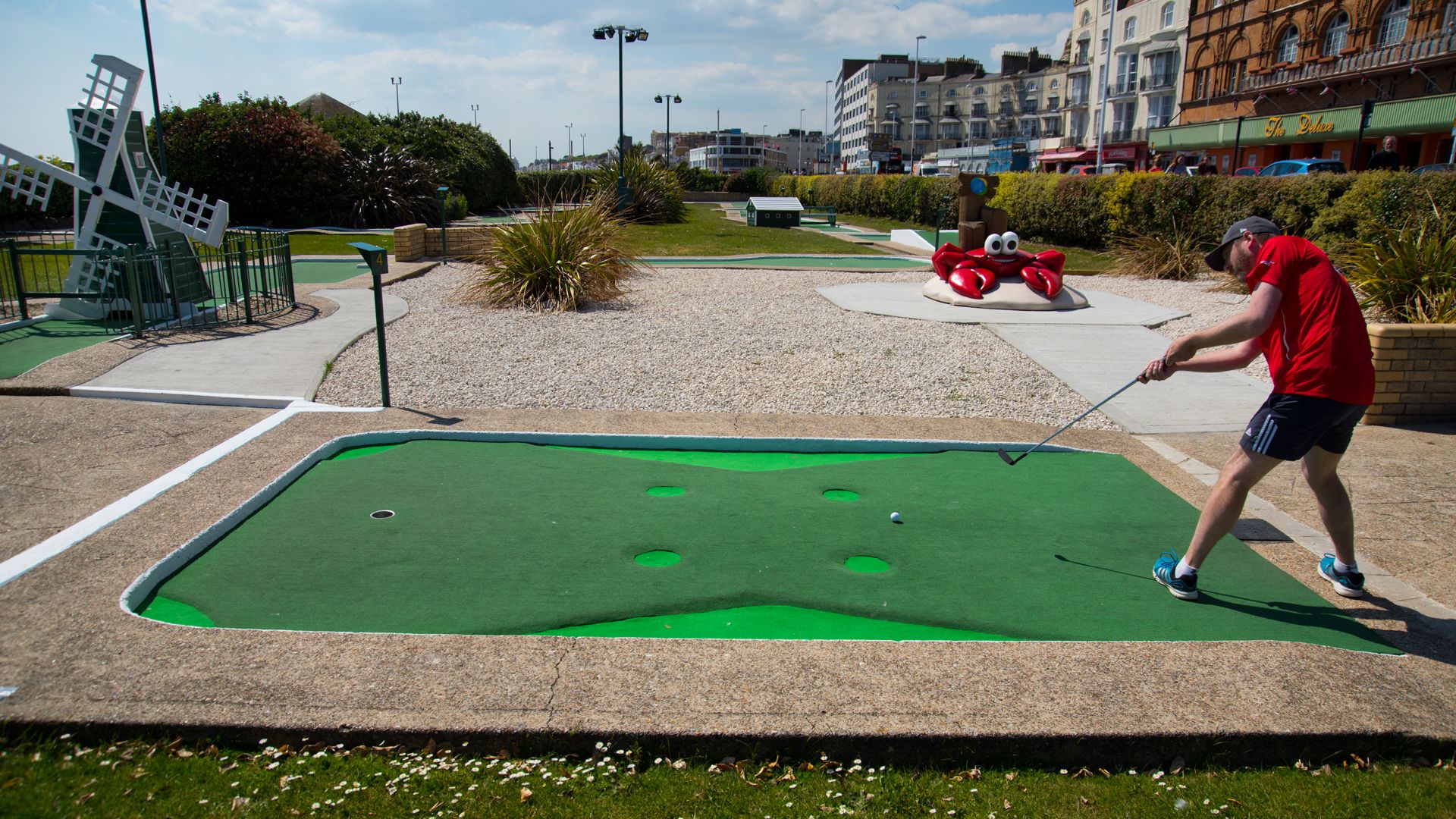Anyone tempted to train for potential Olympic glory may want a course at home. A self-assembly “supersize” nine-hole crazy golf course, with assorted obstacles, 18 putters, 18 balls and 1,000 scorecards certainly sounds like the ultimate kidult gift.
But it does not come at pocket money prices. It is yours for £3,000.
More affordable, perhaps, is hiring a four-hole course for just over £200.
Selling and renting these courses is Putter Fingers, a business based in Thetford in Norfolk, which bizarrely is an off-shoot of a software company which started selling courses mainly to show off its ability to make websites.
“The business of crazy golf has a fair bit of growth left in it,” says logistics manager Richard Clarke, explaining that putters are the biggest seller.
Schools, corporate event organisers, couples looking to entertain their guests at a wedding, and birthday entertainers are all regular customers.
But the really crazy money is being made in big cities like London – all because of a phenomenon called competitive socialising.
“People don’t just want to go to a restaurant or a bar and just eat or drink, they want something else,” says Matt Grech-Smith, co-founder of the crazy golf activity bar Swingers, which employs 250 people.
“Social media is playing a role in that. People want to show off the experiences they are having. Something visually appealing works.”
Swingers – with a name squarely aimed at its over-18 clientele – has two sites in London, a turnover of £18m a year, and a “healthy” profit margin, according to Mr Grech-Smith. The next market to crack, he says, is that original minigolf mecca – New York.
Each site has two nine-hole courses, not-so-subtle mid-round bars to replenish visitors, and choice of meals from burgers to burritos. People typically spend £30 to £50 a night – a lot more than they would for a game of crazy golf and chips on the beach in Hastings.
Even early on a Wednesday afternoon there was huge corporate group eating pizza, drinking beer, and cheering or bemoaning each other’s putting skills. The booze would get them disqualified from official minigolf tournaments, but it is integral to these adult-only venues.
To the converted, including some commercial landlords, this kind of place is a saviour for the troubled High Street. The theory is strengthened by the fact that Swingers is located in the old flagship store of collapsed retail giant BHS.
Elsewhere, the owner of Paradise Island Adventure Golf – which has seven indoor courses in UK shopping centres – was bought in late 2017 for more than £10m.
The worlds of retail and entertainment are colliding, and are in direct competition with the theatre, concerts, and even home entertainment like Netflix, says Mr Grech-Smith.
“Lots of retail brands are making their shopping experience much more immersive and experience based. The tastes of the consumer are clearly changing,” he says.
“Those destinations that can offer as many different experiences as possible are going to win.”
To the less convinced, competitive socialising faces an uphill struggle in attracting repeat visitors.
But, for now, business is booming and the game has momentum.
The St Andrews Ladies’ Putting Club started the ball rolling, it gathered pace in the US in the 1920s, was carried forward by enthusiasts across Europe, and has landed straight into the social media feeds of millennials enjoying a competitive night out.
Plenty of economic obstacles may stop this becoming a second golden age for the game.
But there are supposed to be obstacles. This is crazy golf.


